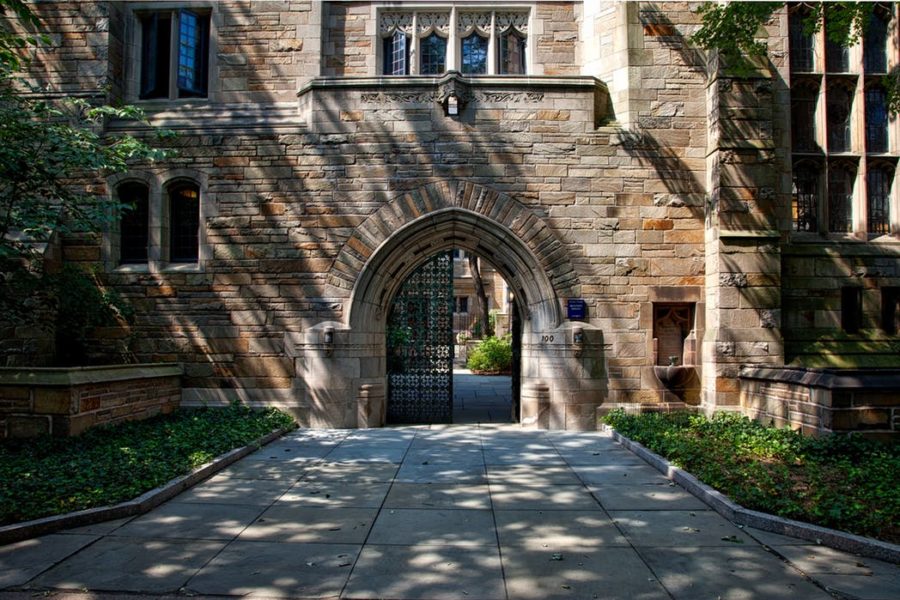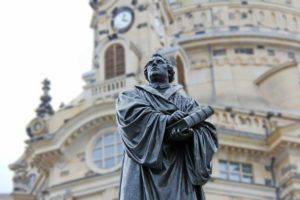Alexander Solzhenitsyn delivered one of the most legendary speeches of the 20th century just over 40 years ago, on June 8, 1978, when he was invited to give the commencement address at Harvard University, having lived in exile from the Soviet Union in the state of Vermont for four years. What follows here is an abridgment of his address, with minor annotations, and some closing observations by George Friedman.
Solzhenitsyn began by reminding the Harvard fraternity that “Veritas” (its motto) means truth, but that the truth is seldom sweet, and invariable bitter. However, whatever truth his speech may contain is being offered not by an adversary, but a friend. In other words, if his audience was expecting another scathing attack of the Communist system of Soviet Russia, they were in for a surprise. Solzhenitsyn had his aim firmly fixed on the West.
He opened his speech with some general remarks about the state of the world, reminding us that the world is not exactly split in two, but that there is a third world also. The West’s perennial problem throughout history has been that it views the rest of the world, including Russia, through its own lenses, and measure it by its own standards.
The rise of former colonies against its European masters in recent decades serves as a telling example of this fact. ‘The small world of Europe was easily seizing colonies all over the globe, not only without anticipating any real resistance but usually with contempt for any possible values in the conquered people’s approach to life”. It all seemed an overwhelming success until the colonial servants garnered the courage to rise up against their masters. It is difficult yet, said Solzhenitsyn “to estimate the size of the bill which former colonial countries will present to the West… and whether not only the surrender of these colonies but everything the West owns, will be sufficient to foot the bill”. An in incredible prophetic insight in light of the mass immigration crisis we are facing. Solzhenitsyn then went on to address the key weaknesses of the West as he saw it forty years ago.
“The most striking feature to an outside observer,” Solzhenitsyn said, was “a decline in courage”. The Western world has lost its civil courage, which is visible in each of its countries, political parties and in the UN. It leads to passivity, cowardice and paralyzes and affects the entire society. He asks whether we are aware that a decline in courage from ancient times signaled the beginning of the end for a civilization?
The second most striking feature of the West to an outside observer is its belief that man “lives to be free and to pursue happiness”, as enshrined in the American Declaration of Independence of 1789. This idea of happiness has however become closely associated with materialism, “the constant desire to have still more things and a still better life”. Yet the struggle to achieve this debased form of happiness carefully conceals the worry and depression such a pursuit lies upon its adherents. What’s more, who wants sacrifice “unlimited freedom in the choice of pleasures” for some common goal and noble purpose, like to defend one’s country in a distant land? Even biology teaches us that habitual well being (i.e. comfort and ease) is not advantageous to a living organism.
A third weakness of the West is its legalistic bent. Laws determine the limits of human rights and wrongs. “People in the West have acquired considerable skill in using, interpreting and manipulating law… Every conflict is solved according to the letter of the law and this is considered the ultimate solution”.
From this point of view, nothing more is required, than to stay within the legal limits of the law or the rulebook. “Nobody may mention that one could still not be right” by doing so. To call for “a renunciation of these rights, for sacrifice and selfless risk” would sound absurd. Voluntary self-restraint is almost unheard of. Everybody strives toward the “extreme limit of legal frames”. He mentions two examples. An oil company may buy up an invention of a new type of energy, to prevent its use, or a food manufacturer may poison its produce to make it last longer. After all, clients are free to purchase or not to purchase.
His next critique is aimed at the perverted sense of freedom in the West. “A statesman who wants to perform something truly noble for his country has to move cautiously and even timidly, thousands of hasty and irresponsible critics cling to him at all times, as he is constantly rebuffed by parliament and the press. He has to prove that his every step is well founded and absolutely flawless… Thus mediocrity triumphs under the guise of democratic restraints”.
“The defense of individual rights has reached such extremes as to make society as a whole defenseless against certain individuals. It is time in the West to defend not so much human rights as human obligations”. Destructive and irresponsible freedom has been given boundless space. Society is defenseless against human decadence. It can be seen in the moral violence committed to young people by allowing them the liberty to view motion pictures filled with pornography, crime, and horror. It is considered liberty since they have the freedom not to look or to accept it.
That Western society is defenseless against such a corrosion of evil is also seen in its high levels of criminality, which is considerably higher than “in the destitute and lawless Soviet society”. Culprits go unpunished or obtain undeserved leniency, with the support of thousands in society. And when the government seeks to fight terrorism, public opinion immediately accuses it of violating the terrorist civil rights. At the heart of this tilt toward evil lies the benevolent concept of humanism that man does not bear any evil in him, and that all the defects in his life are caused by misguided social systems.
The press (media) is the finest example of this boundless freedom. It has no true moral responsibility when distorting the news. Both the reading public and history have to suffer under its tyranny. Even when poor journalism has led to national “mistakes”, apologies are seldom heard, for that may damage sales. The country may be for the worse, but the journalist always gets away with it. He will very likely start writing the exact opposite than before, with renewed assurance. News columns resort to rumors and guesswork to fill the voids, none of which will ever be refuted. Every day hasty, superficial and misleading judgments fill the air.
And yet, the media has more power than any form of government in the West. In the Communist East, a journalist is responsible to the state. Buy who voted Western journalists into power, for how long, and to whom do they give account?
That unrestrained freedom exists for the press, but not for the readership, since it becomes increasingly risky to voice an opposing opinion, brings us to the last of the troubling features of the West according to Solzhenitsyn. It is its bent to what is “fashionable”. What Solzhenitsyn means by fashionable corresponds with our modern day term of “political correctness”. “Your scholars are free in the legal sense, but they are hemmed in by the idols of the prevailing fad.” Few people dare to voice opinions that go against the prevailing fashion. If he noticed this problem in the seventies, what would he have said the state of our society today?
He begins the closing part of his speech by saying: “I have mentioned a few traits of Western life which surprise and shock a new arrival to this world”. We now enter the most powerful and prophetic part of his speech in my opinion. He says that while the West has shown the world the way to successful economic development, many of its people are “dissatisfied with his or her own society. They despise it or accuse it of no longer living up to the level of maturity”. And this causes many to sway toward socialism, “which is a false and dangerous current”. Solzhenitsyn makes it clear he is no advocate for socialism. Socialism leads to the destruction of the human spirit and to a leveling of mankind into death.
And yet he continues: “But should I be asked whether, instead, I would propose the West – as it is today – as a model to my country (the USSR) I would frankly have to answer negatively. No, I could not recommend your society as an ideal for the transformation of ours. Through deep suffering, people in our own country have now achieved a spiritual development of such intensity that the Western system in its present state of spiritual exhaustion does not look attractive to us”. He calls the characteristic Western features listed before as “extremely saddening”.
He goes on: “A fact that cannot be disputed is the weakening of human personality in the West, while in the East it has become firmer and stronger.” For six decades his people in Russia have gone through a spiritual training “far in advance of Western experience. The complex and deadly crush of life has produced stronger, deeper, and more interesting personalities than those generated by Western prosperity”. All of this means that the West is no attractive option for Russia.
He calls the West a “perishing society” and its way of life “a less and less an attractive model” to follow. He mentions that when for instance there is a hydro blackout in our part of the world, it is not long before citizens start looting and create havoc, which is unheard of in his own country. He says one can feel the forces of evil have begun their destructive offensive, even though our screens and publications are filled with smiles and raised glasses.
In the final part of his speech, he asks what could have led to this radical decline of Western civilization? His answer is that it was unmistakably the proclaimed humanistic autonomy from all authority by the Enlightenment. This new view of the world did not allow for man’s intrinsic evil nature, nor did it aspire any higher than to the attainment of happiness on earth, i.e. of man worshipping his material needs. But this boundless freedom and materialism have cut the West loose from its Christian past. The West knows everything about human rights, but nothing about man’s responsibility toward God and society. Solzhenitsyn then makes this ominous prediction which has begun to go into fulfillment in our times: Past centuries have proven “Liberalism was pushed aside by radicalism, radicalism had to surrender to socialism, and socialism could not stand up to communism”.
He then makes this telling statement: “In our Eastern countries communism has suffered a complete ideological defeat; it is zero and less than zero. And yet Western intellectuals still look at it with considerable interest and empathy”. This is what is going to make it so difficult for the West to withstand Communism in the future. The West has made man the measure of all things, imperfect man who is never free of pride, self-interest, envy, vanity and a dozen other defects.
We have placed way too much hope in politics and social reforms, only to discover that we were being deprived of our most precious possession: our spiritual life. It is trampled upon by the Party mob in Soviet Russia, and by the commercial stampede in America. But if humans were really born only to be happy, they would not have been subject to death. Death ought to remind us all that life is about much more than the body and its needs. Nor is the biggest question in life how much one makes. And is it really true that man is above everything else? Is there no Superior Spirit above him? Thus, the only way left for us is upward. And so his famous speech ended.
George Friedman, founder, and chairman of Geo-Political Futures wrote in an article celebrating Solzhenitsyn’s legacy in the year of the author’s death in 2008 entitled “Solzhenitsyn and the Struggle for Russia’s Soul”. It began stating, “There are many people who write history. There are few who make history through their writings.” Solzhenitsyn “laid the intellectual foundations for the fall of Soviet communism. That is well known. But he also laid the intellectual foundations for the Russia that is now emerging. That is less well known, and in some ways more important”. He ends the essay with these words “…it is hard to think of anyone who spoke to the Russian soul as deeply as he did. He first ripped Russia apart with his indictment. He was later ignored by a Russia out of control under… Boris Yeltsin. But today’s Russia is very slowly moving in the direction Solzhenitsyn wanted. And that could make Russia extraordinarily powerful. Imagine a Soviet Union not ruled by thugs and incompetents. Imagine a Russia ruled by people resembling Solzhenitsyn’s vision of a decent man”. That should make us pause and think deeply.








